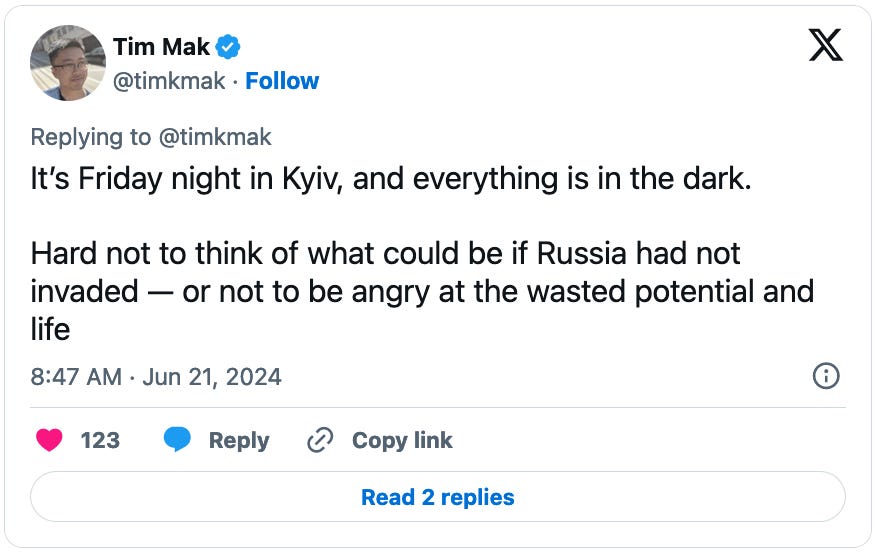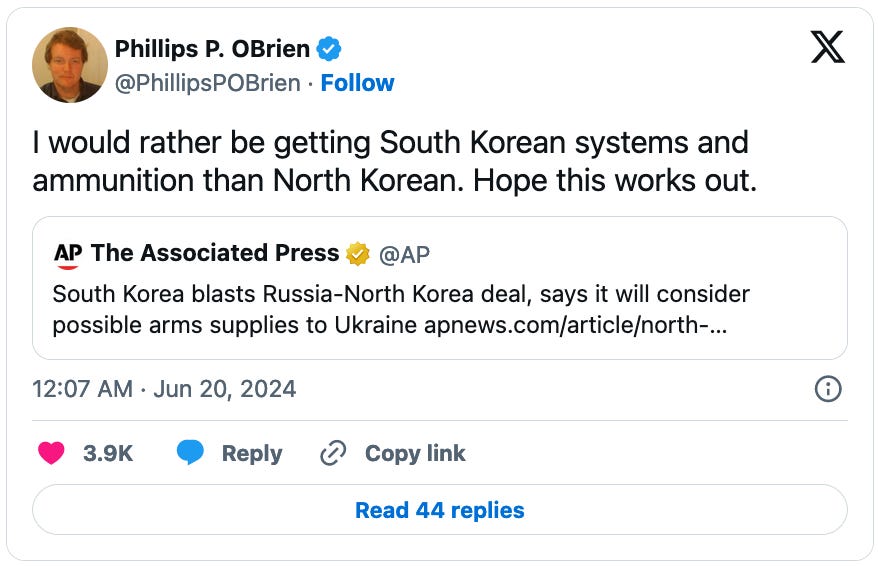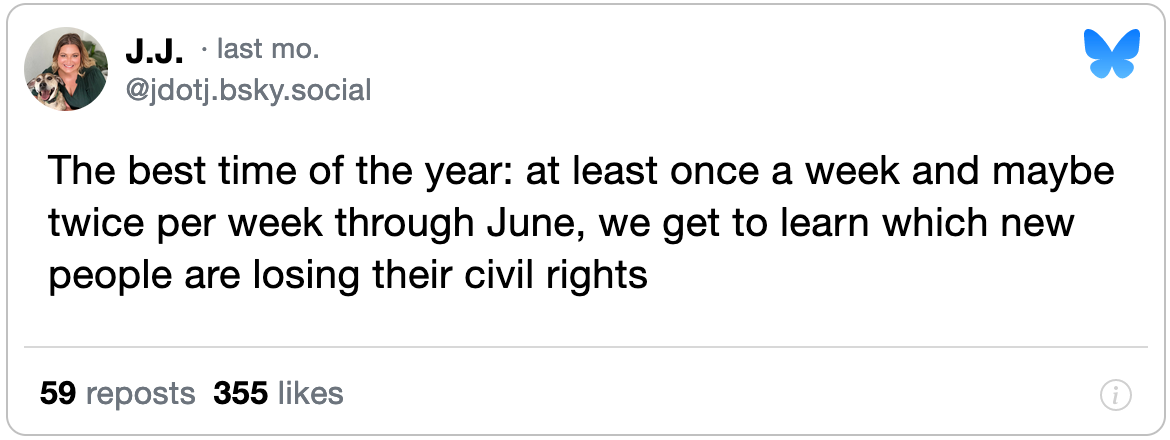In this episode of my podcast Talking About the Future, I talk with Superforecasters® Jean-Pierre Beugoms and Scott Eastman about the war in Ukraine. We talk about how long the war is likely to last, whether it could have ended quickly, and what the endgame is likely to look like. You can listen to our full conversation using the audio player above or on most podcast platforms. Excerpts from our conversation, edited for clarity, are below.
I want to start with just a quick question for both of you. The question is, what's the chance there'll be a lasting ceasefire agreement between Ukraine and Russia before the end of this year?
JPB: Since I'm an optimist, I would say maybe 2%.
The optimistic answer is 2%. What do you think, Scott?
SE: Now I really feel stupid because I was going to say 3%, and now I think I'm really going a little crazy with my optimism....
Was there ever a realistic chance that this war was going to end quickly?
SE: I think yes, but I think it was a low chance. But I think one of the ways that would have had to have happened was in the first 24 hours for Russia to have taken the airfield near Kyiv. And if they miraculously could have somehow taken out Zelenskyy, taken out the leader, put the country into total disarray, that probably would have been their best chance. I think they still probably wouldn't have achieved it, but that would have been the main thing. And they got really bogged down almost immediately. You know, that they did get people to the airfield, but they got smashed, you know, repeatedly. And there were multiple attempts to reach Zelenskyy. Those completely failed. Zelenskyy's not the only person in Ukraine, so we don't have the counterfactual of knowing what would have happened if they had achieved that. You know, there's still other people who could step up. Zaluzhnyi, the military commander at that time, was considered probably more important than Zelensky in some ways. And in the early days, Russia did take a lot of territory. I mean, they've lost about half of what they had. It's easy to look at it now and say, oh, no, they didn't really do anything. But if there was a complete surprise, we don't know....
JPB: Yeah, I agree. The chances of the war ending quickly were never very high. In hindsight, just look at the Russian logistical capacity, they basically could not sustain a war into West Ukraine. So it really depended on their objectives. I think, again in hindsight, their objectives were too expansive given their military capability. Without subduing Western Ukraine, I think you would have had a resistance movement in Eastern Ukraine from Western Ukraine, supporting the partisans in Eastern Ukraine. So the war would have continued. It wouldn't have been conventional, but there would have still been a war, perhaps something more similar to the Soviet war in Afghanistan or something of that nature. So it was never realistic. And I think decapitating Zelensky wouldn't have broken the Ukrainian will to resist....
What can we say in general about how long wars like this tend to last? I have a political science background. There's a lot of research on why wars start, a lot of different models about that. There seems to be a lot less research on how wars end and why wars end....
JPB: I would say once the two sides realize that the costs of continuing the war exceed the potential gains from the war—so basically a convergence on what they think the outcome of the war will be—then we'll start to reach the endgame and the negotiation phase. I don't think we're near that point at the moment. Both sides still think they can win, and they're still willing to pay the price in blood and treasure to achieve that goal. But, again, once we've reached that point, then we'll enter a phase—I would compare it to the Korean War, perhaps, where really the last year or two of the Korean War, there were incremental gains, the lines kind of moved back and forth slightly. Meanwhile, there were negotiations over how to end the war, the main hang up being what to do with the prisoners of war, reaching a deal on that. I'm guessing at least two more years before they converge on a single opinion that, yes, this war is not worth continuing. And then another year or two to hammer out the differences to reach a lasting peace settlement. That's just my ballpark estimation. So I would say four years....
SE: It may depend on how many people a day are dying. Ukraine has tried to not go below 25 years old as far as fighters, which is actually quite old for requiring people to go fight, so they can still go quite a bit younger and bring in more people. But a lot of people have been fighting from really early on. They haven't had a lot of rotations. If it's like what was happening from 2014 to 2022 with a relatively low level of fighting, a relatively low level of deaths, the war could go on for a very long time. But if it's the way it has been the last year or two—I'm not saying that JP's two-year model isn’t right, I completely agree with that—but it would be hard for it to go on for 5 or 10 years if they have high levels of people dying....
Sometimes you hear people say that literally if it doesn't stop in Ukraine, Russia will expand into the rest of Europe, potentially into Poland and Lithuania. They're already messing with Estonia. They're jamming GPS signals. Is that literally true? I mean, can you see a push from across the Suwałki corridor to Kaliningrad? Is Poland next? Or is that just fear mongering?
SE: I don't think Poland is next, because I think Poland is actually quite strong. Their military is quite strong, and I think Russia is smart enough to know that. And Poland has a pretty long history of an absolute fear and hatred of Russia.
That's why their military is strong, right?
SE: Exactly. So I don't think that Russia would be their first target. But clearly Russia already has soldiers in Moldova and Transnistria. That's a small area. But would they try to take Moldova? They've expressed an interest in taking Moldova. They are already meddling in Moldovan politics. There's an election coming up in Moldova where there's a pro-European party, and there's a more pro-Russian party. So that would be an easy target without invoking NATO, even though Romania might come to the defense of Moldova. Then when you get into other areas, would Russia start doing some little small cross-border things, kind of like they did with Crimea with the Little Green Men, not necessarily a full frontal attack? Right now, I don't see them having the military ability to do that. So even if the US fully disengaged, considering how much difficulty Russia's had getting into Ukraine already, I don't see them rolling across all of Ukraine getting to Poland with a massive supply chain. That would be more JP's area of expertise, but I certainly I'm not afraid for Paris right now....
JPB: Russia doesn't have the military capacity to make gains much beyond where the lines are right now. It's my understanding—and you're the Putin expert here—that Putin has a healthy fear of NATO power. He's also shown, perhaps more than we expected, he's shown more restraint or, let's say, more fear of escalating the war. And a little bit more tolerance for escalation on the Ukraine and Allied side than we expected. I'm talking about the strikes into Russia itself. So I think he's not crazy. He's not going to confront NATO head on. And even if he wanted to, I don't think that capacity exists. The Russian military has proven to be much weaker than anyone expected. I think his objectives right now, maybe they weren't the objectives he had when he started the war, certainly not, but now I think they're basically to cleave off Donbas and Crimea from Ukraine. And right now, the offensives are all about increasing their bargaining power at the negotiation table, neutralizing Ukraine, and getting security guarantees from NATO as well....
It seems pretty likely to me that over the next few years we're going to be looking at the same front lines.
JPB: Well, I think the most likely outcome is either stalemate or further territorial gains for Russia. I mean, Ukraine is on the defense, and we all know the defense is stronger than the offense. However, they are defending very long lines, and Russia can concentrate forces at any point. They don't have to stretch out their troops as thinly. And they have that manpower advantage. They have the advantage in ammunition. So I think it's more likely that they can make a breakthrough, send in reserves, and pick up more territory. I'm not talking about sending Ukraine back to where the Russians had made their furthest advances, but enough to make the idea of coming to the negotiation table more attractive for Ukraine and the allies. I think another problem with the lines being frozen where they are is it actually gives Russia more territory than probably what they are seeking in the end....
SE: Well, one thing I was thinking about on this is currently for both sides, certainly for Ukraine, if it stays frozen like it is now—I mean, I know it's not frozen completely, but let's say that the lines are frozen and there's not even much fighting there—there's still a lot of missiles being sent towards Kyiv, even occasionally Lviv. Everywhere can be hit and is occasionally getting hit. And the power grid is getting hit fairly regularly. They're having major problems with electricity. If that continues for years and years and years, and at the same time, Ukraine can continue to hit fairly deep inside Russia and hit oil refineries and whatever is important to Russia, I'm curious if there's some way where there's not actually a peace deal, but is there any situation where somehow back channel, they more or less accept that the lines are frozen where they are, but that both sides de-escalate the attacks far beyond the lines? Right now that's not going to happen, but in two years or whatever, would that be possible?
Kind of a tacit agreement.
SE: Yeah, exactly. You stop hitting Kyiv and all this stuff and our power grid, and we'll try to stop hitting your refineries. Because it's not a game where either side's going to win over it because of that. I don't think that Russia's all of a sudden going to beat Ukraine because they hit their power grid. And I also don't think Ukraine, even though I understand them hitting their oil facilities and all that, but that's not going to be enough to turn the tide of the war either.
You can listen to my recent discussion with Jean-Pierre Beugoms about the upcoming US election on the previous episode of Talking About the Future here. This newsletter depends entirely on reader support, so if you enjoy this podcast and would like me to do more interviews like this, please consider becoming a paid subscriber. You can also help me by sharing this post and by rating Talking About the Future on your favorite podcast platform.













Jean-Pierre Beugoms and Scott Eastman on Ukraine